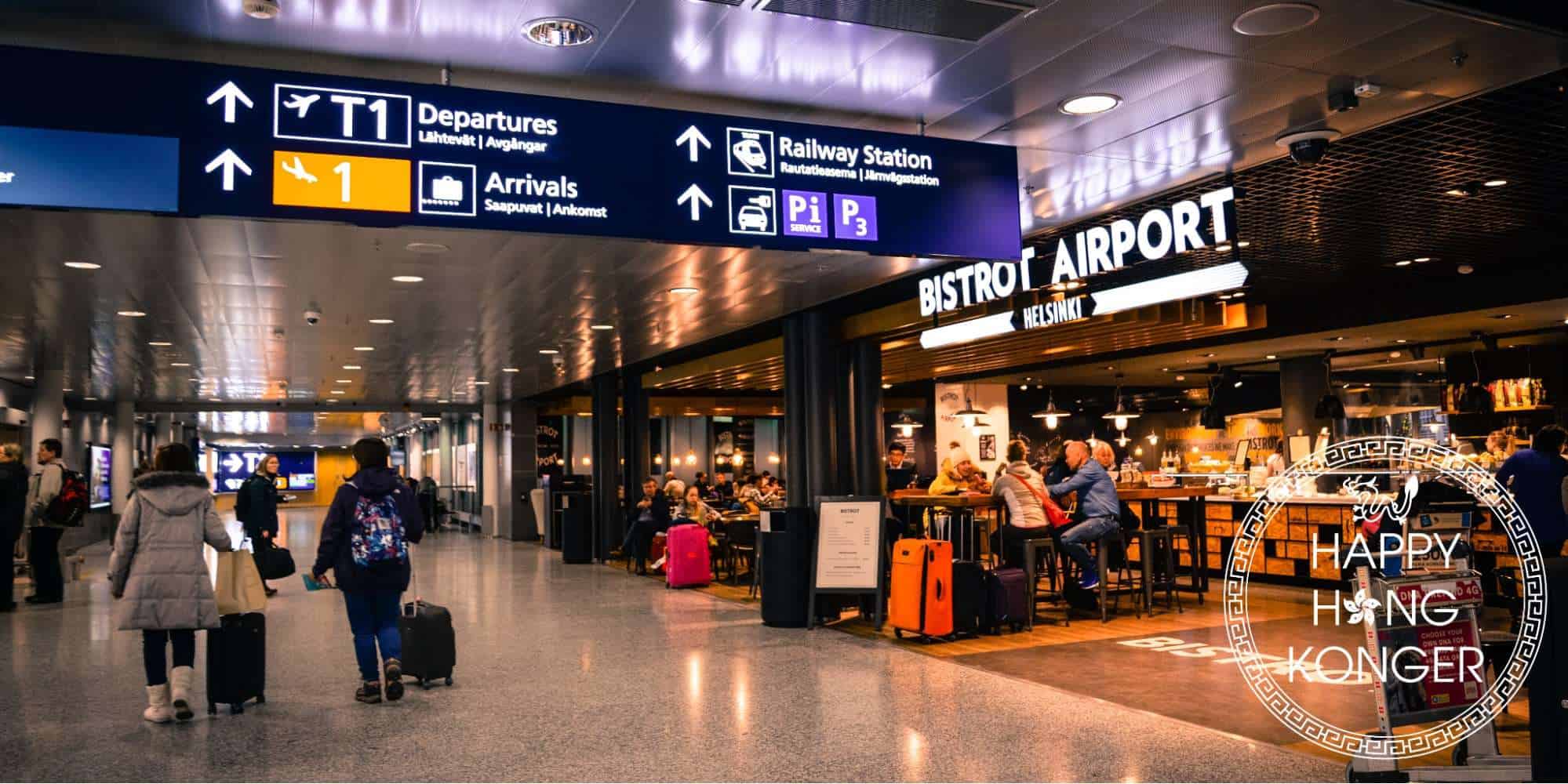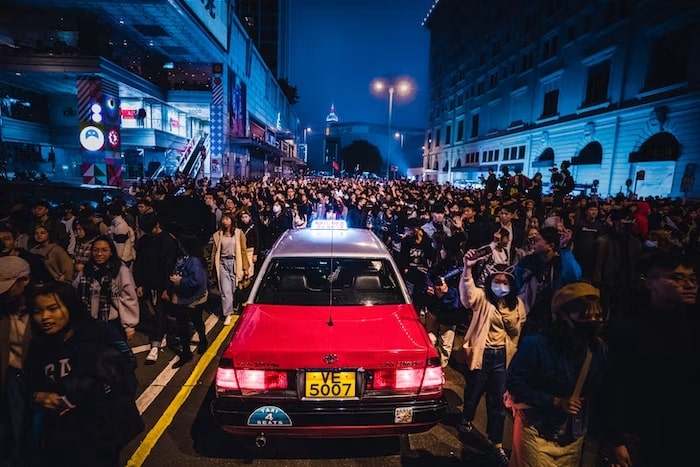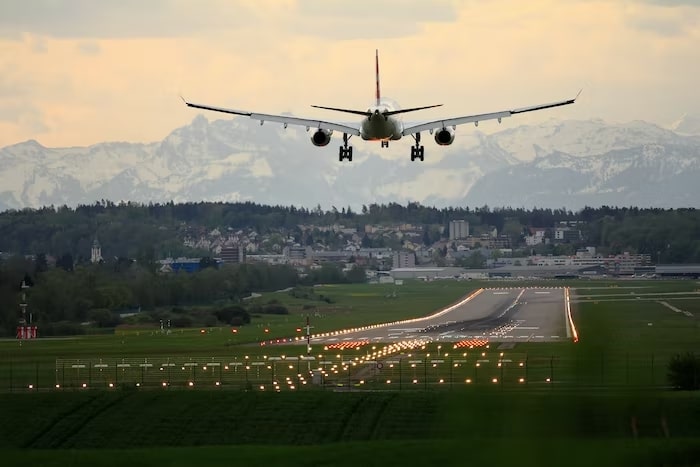Categories > Guides and Tips

Why are Hong Kongers leaving Hong Kong?
- Why are Hong Kongers fleeing Hong Kong?
- Hong Kong’s Pandemic Policies and Response
- Intensifying Political Tensions with Beijing
- Other Reasons for Hong Kongers’ Emigration
- Should I leave Hong Kong?
- How many people have left Hong Kong?
- How is the exodus of locals affecting Hong Kong?
- Where are Hong Kongers emigrating?
- Why do Hong Kongers choose the UK to immigrate?
- Why do Hong Kongers choose Canada to immigrate?
Hong Kong is a wealthy region with beautiful bustling cities and breathtaking natural wonders. While many foreigners dream of living in the special administrative region, more and more locals are asking themselves the question, “Should I leave Hong Kong?”
If Hong Kong is a magnificent place and Hong Kongers are rich, why is there an uptick in emigration away from it?
Well, continue reading to know more about why Hong Kongers are leaving Hong Kong.
Why are Hong Kongers fleeing Hong Kong?
Hong Kongers are leaving Hong Kong because of two primary reasons: the government’s harsh pandemic controls and increasing political tensions with Beijing. Many locals find it hard to stay as they feel their freedom is being stifled.
To put it simply, the reason Hong Kongers are leaving Hong Kong is that they are unhappy with the current situation in the region. The youth and elderly alike feel disillusioned, causing those with the ability to leave.
To better understand their plight, let us look at the SAR’s state of affairs in detail.
Hong Kong’s Pandemic Policies and Response

Due to the pandemic and the increase in infections, Hong Kong put in place the zero-Covid policy following mainland China.
The dynamic zero coronavirus policy has one of the most stringent travel restrictions in the world, with many being forced to stay home unless absolutely necessary.
The government put lockdowns in place, highly limiting citizens’ movements outside their homes. Despite easing restrictions, Hong Kong’s citizens are still subject to strict rules.
For example, gatherings are limited to 12-person groups, and some businesses have curfews and rules on who to admit. People caught violating these rules can be subject to heavy fines and imprisonment.
Eventually, Hong Kong loosened up business and border restrictions, but the policy’s effects on the economy and individuals still shake the region.
Many residents also fear that the loosening border controls might increase infection rates due to the uptick in foreign visits.
Citizens are also obliged to use the LeaveHomeSafe app on their phones to help the government track people’s locations and show people if they’ve been near suspected COVID-19 patients.
Unfortunately, this app has been the source of doubt and suspicion among the masses. They believe that the governments of Hong Kong and Beijing are using the app to violate data privacy and collect information as a form of mass surveillance.
The reason people feel fear is because the software knows where you are and when you arrived.
Although the government denies such allegations, Hong Kongers still feel uneasy as many believe civil liberties are constantly being undermined in the mainland.
In short, a combination of strict rules, risks of surveillance, and overwhelming increases in infection force Hong Kongers to leave. However, the pandemic isn’t the only thing causing a mass exodus out of the special administrative region.
Intensifying Political Tensions with Beijing

Many Hong Kongers are also trying to leave Hong Kong because of Beijing’s increasing involvement and influence over the region. Countless people flee out of fear of prosecution, while others migrate to countries where they feel they will not be constantly silenced.
These concerns came from China’s imposition of the National Security Law that muzzled any opposition to Beijing.
China imposed the law after the 2019 pro-democracy, anti-Beijing protests in which the government silenced all critics and dissenting figures.
Since the passing of the law, the government arrested hundreds of pro-democracy activists, disqualified opposition candidates from government posts, unseated elected officers, and increased media censorship.
Some of the items that the state censored and reviewed include foreign movies, school textbooks and curricula, online and print news publications, and other media deemed threatening or subversive to national security.
With such draconian policies in place, many Hong Kongers now feel disillusioned about their freedom in the special administrative region and have decided to leave.
The youth, especially, report that their mental health took a hit even though they stayed far away from the mass demonstrations.
In a Reuters interview, one person deciding to emigrate said, “if the youth fear speaking out, then this isn’t a suitable place.” It would be unsurprising if other citizens, especially pro-democracy Hong Kongers, share the same sentiments.
Other Reasons for Hong Kongers’ Emigration

Although the political climate and pandemic controls are the primary factors driving Hong Kongers to leave en masse, other immigrants cite other reasons for their decision to move.
Some people interviewed by the Japan Times cite inflation concerns, expensive housing, limited study options, and an overall lack of opportunity.
This may be because Hong Kong is experiencing a severe housing crisis. It has grown so severe that the government has already decided to step in and provide homes to over 50% of the population.
Hong Kongers also experience a huge increase in the wage gap, where most of the population’s income struggle to cover even the most basic expenses.
Should I leave Hong Kong?
If you have the ability to leave Hong Kong and wish to avoid the tumultuous political climate, pandemic constraints, inadequate housing, and scant opportunities, then you might want to consider leaving.
If you are otherwise satisfied with everything happening in the region, you could opt to stay and avoid the extra costs and hassle of leaving.
How many people have left Hong Kong?
113,000 people have already left Hong Kong in the past 12 months as of August 2022, and more are expected to migrate towards other countries, particularly the UK.
| People who left in 2019 | 93,000 |
| People who left in 2020 | 23,000 |
| People who left from August 2021 to August 2022 | 113,000 |
| Britain’s estimates of how many will immigrate from Hong Kong to the UK | 322,000 |
As you can see in the table above, there is an increasing trend of Hong Kongers leaving the region. Hong Kong’s population dropped from 7,413,100 to 7,291,600 in 2021 alone.
Despite the exodus, Hong Kong’s government says that the drop in population also factors in deaths, a declining birth rate, and the inability of Hong Kongers abroad to reenter due to the stringent border controls.
However, it isn’t just the residents that are leaving. Many large companies are also moving out of the region for various reasons.
According to a report by the South China Morning Post, Hong Kong General Chamber of Commerce CEO, they conducted a survey that found that 30% of large firms were considering leaving Hong Kong or had already departed.
In addition, 10% of the respondents said they left for good.
Also, Hong Kong’s Census and Statistics Department reported that the number of US businesses with regional offices in the region dropped from 282 in 2020 to 254 in 2021.
How is the exodus of locals affecting Hong Kong?

The current trend of residents and businesses leaving Hong Kong raises concerns. It might affect the economy so much that the region would lose its status as a global financial hub.
Many businesses and professionals fear that the economy may have difficulties recovering, especially after the lockdowns and the rising political tensions. These situations create uncertainty that will affect corporations’ desire to do business.
For example, many flights that used to go through Hong Kong now opt for other locations. As such, the region may find itself losing its role as an aviation hub.
The exodus may also create a brain drain in Hong Kong, causing it to experience reduced productivity as professionals seek employment abroad.
Still, academics don’t believe that Hong Kong is in too much trouble since many see it as a gateway to the Chinese market.
Others are confident that many foreigners will find the countless things to do and the combined urban and natural beauties of Hong Kong enticing enough to balance the outflow of residents.
Where are Hong Kongers emigrating?

In the wake of the region’s pandemic response and political turmoil, many Hong Kongers moved to neighbouring countries such as Japan and Singapore, while others moved to more distant nations such as Canada, Australia, and the UK.
Many businessmen and families chose Singapore for its ease of business, tax incentives, open borders, and overall friendliness.
However, many are moving to the UK under its BNO program and Canada through its lifeboat immigration schemes.
Why do Hong Kongers choose the UK to immigrate?
Hong Kong locals are moving to the UK because of Britain’s British National Overseas passport program, giving the youth and adults in the SAR a chance to escape Beijing’s tightening grip.
The BNO program was put into action after the imposition of the national security law in Hong Kong, which many say inhibits freedoms.
Currently, over 5.4 million residents are eligible for the BNO program, allowing applicants to work and study in Britain for up to five years before they can apply for citizenship.
Why do Hong Kongers choose Canada to immigrate?
Hong Kongers choose Canada to emigrate to because of the country’s permanent residence pathways that allow them to easily apply for residence.
However, Canada’s lifeboat immigration scheme only applies to Hong Kong residents that graduated in Hong Kong or are currently working in the country. As such, immigration options are slightly more limited compared to the UK’s British National Overseas plan.





